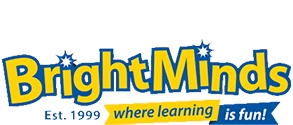Learning maths outdoors is an excellent way to help children enjoy learning, and it can help their confidence grow! They can practice and apply mathematical skills whilst having fun. Over the last few months, many children have been trying to learn from home through worksheets and assignments sent by teachers. Doing some playful activities outside can help take some pressure off while maintain learning.
Here are some ideas to get you started:
Skittles & Bowling Game
Playing skittles or bowling is a great way to practice counting. Older children can also use it to practice adding and subtracting by keeping track of how many they have knocked over and how many are left standing.
Ball Games
Playing ball games can be an easy way to practice counting. Children can count how many times they catch the ball, how many goals they score, and more. Many other ball games require children to keep score, including football, basketball, rounders, etc. These can be a simple way for children to practice adding and recording scores.
Quoits and Other Garden Games
Games like quoits are fun to play with family and friends. You can score 5, 10, 15, 20 or 25 points per toss so children will practice identifying the numbers, adding them and writing it down to keep track of scores. Children can also throw balls at targets. Target games are a great way to practice identifying numbers, and older children can practice addition by keeping score.
Riding Bikes and Scooters
Riding bikes and scooters is a great way for children to develop an understanding and vocabulary related to position and direction. Children can make routes or follow those created by adults (e.g. they can go behind, around, under, through things, etc.). This is also an excellent opportunity to practice measuring time; children can see how long it takes them to get around a route or cycle the length of a block.
Den Building
Den building is a fun activity that children can do in the back garden with sheets, ropes, chairs and other things that are lying around. Alternatively, children can build dens in the woods using sticks, branches, and trees. These types of construction activities are fantastic ways for children to be able to develop spatial awareness and processing. Children are also able to use this time to work cooperatively and problem solve.
Large Dominos Games
Playing with large dominos is a great way to help children develop numbers skills. It will help them learn to subitise (recognising the number of objects in a set without counting), which will also help them to understand numbers better.
Number Hunts
Number hunts are a fun way for children to practice counting objects. You can ask children to collect sticks, flowers, leaves, rocks etc. They can collect as many as they can or gather a set amount and match them to a numeral. Both are excellent ways for children to practice counting and to start understanding the value of numbers. Alternatively, children can go on shape hunts to find 2D or 3D shapes. This activity is a fun way to notice shapes in nature as well as architecture.
Hopscotch
Hopscotch is a fun game that many children enjoy playing. It is a great way for children to practice number recognition; if children make their own, they can practice ordering or writing numbers. You can also challenge older children by making games that count in 2's, 5's, 10's, and more.
Water Play
Playing with water is a fun outdoor activity during the summertime! You can also make it a learning opportunity by adding containers that children can use to pour and measure. Children can explore pouring and filling with different sized containers, which allows them to learn about volume and capacity and can help them begin to develop an understanding of conservation of matter.
Gardening
Gardening is a wonderful outdoor activity to do with children, and there are lots of hands-on opportunities to practice measurement. Children will need to measure distances when planting seeds or seedlings. They can weigh what they grow and cook it by following recipes. You can also challenge older children to figure out things such as the surface area of a garden or how much soil would be needed to fill a planter.
I hope you found these ideas helpful and that you enjoy some fun learning outside!
Author Bio
Sabrina Olizar-Smoke is a graduate of U.C. Berkeley and has a Masters of Social Work. She also has a Post Graduate Certificate in Education from the Institute of Education in London. She is an experienced teacher who has taught primarily in the Early Years Foundation Stage and Key Stage 1. She is passionate about using the outdoors to support children's learning and development. She helped her school gain awards in outdoor learning and linked the school's science curriculum to gardening and outdoor education. Since taking time out from teaching to raise her children, Sabrina has a website, PlayoftheWild to support parents and teachers with learning activities, particularly in the outdoors.
Our mission at BrightMinds is to foster “a brighter way to play” to inspire your child to be curious about the world around them & encourage creativity in a fun & relaxed way. We curate a world-class range of educational toys, games, gifts & books which are good quality, safe and backed by our extraordinary customer service. See our Outdoor Learning collection. Backed by our 90 day guarantee we are the number one site for thoughtful toys for kids!










